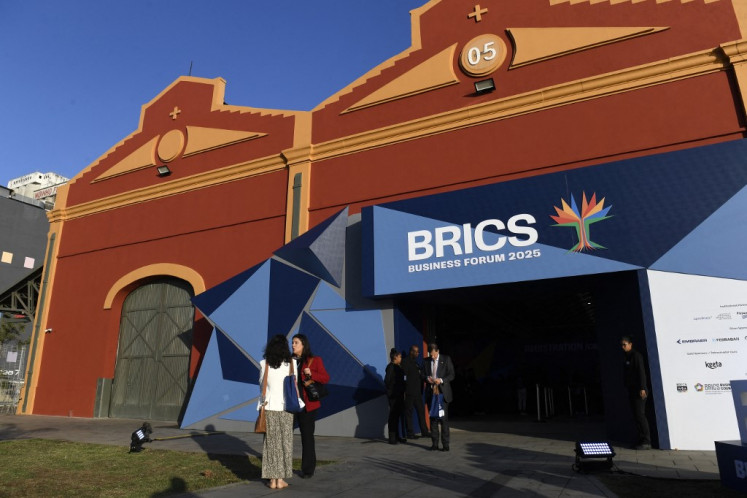Popular Reads
Top Results
Can't find what you're looking for?
View all search resultsPopular Reads
Top Results
Can't find what you're looking for?
View all search resultsGovernment to help pay interest on mortgages, car loans
The government is working with the Financial Services Authority (OJK) to prepare a debt relief program.
Change text size
Gift Premium Articles
to Anyone
T
he government will broaden its loan interest subsidies to include mortgage loans (KPR), automotive loans (KKB), and loans taken out by micro, small and medium enterprises (MSMEs) as part of a debt relief program for those affected by COVID-19.
The government is working with the Financial Services Authority (OJK) to prepare a debt relief program, according to a statement by the OJK issued on April 30.
“The OJK welcomes and supports the government’s relief program related to the provision of loan interest subsidies for borrowers from banks and financing companies,” the statement read.
The announcement said borrowers with loans classified under “collectability one” (current) and “collectability two” (special mention) were eligible for the subsidies, as well as automobile loans under Rp 500 million and housing loans of type 21 and type 22 for properties of up to 70 square meters.
The payments will be given for six months, from April to September of this year. The interest subsidies for loans under Rp 500 million will be 6 percent for the first three months and 3 percent for the remaining three months. For loans between Rp 500 million and Rp 10 billion, the interest subsidies will be 3 percent for the first half of the stimulus period and 2 percent for the second half.
Experts have said that the subsidy will help not only borrowers, many of whom are under pressure as a result of the economic impacts of the COVID-19, but also banks and financing companies that are facing missed payments and rising defaults on loans.
Center of Reform on Economics (Core) Indonesia economist Piter Abdullah told The Jakarta Post on Monday that the loan interest subsidy would help reduce the strain on consumer purchasing power, as the pandemic had hit almost every sector and people were grappling with decreases in – or an outright loss – of income.
“In the middle of that declining income, the expenses remain the same,” he said.
He added that the loan relief program was “good news” for banks and financing companies because “If [they did] not [get the subsidies], they would be experiencing a great amount of pressure from non-performing loans (NPL)”, which could erode the banks’ capital.
The country’s banking industry recorded an NPL rate of nearly 2.8 percent in February, the highest since May of last year, but the OJK said the risk profile of Indonesia’s financial institutions was still under control despite the high NPL rate.
Paul Sutaryono, a banking observer and former assistant vice president of Bank Negara Indonesia (BNI), told the Post on Monday that the loan interest subsidy would limit banks' losses from NPLs.
The two experts agreed that the relief program would complement earlier loan relaxation programs, including the loan restructuring policy. In March, the OJK announced it would relax debt quality assessments and restructuring requirements for loans of up to Rp 10 billion (US$666,666).
The rule stipulates that banks are allowed to classify loans as good loans despite declining quality.
“They support each other. Banks are benefitting from the policies because they can restructure [loans], while at the same time there is also a subsidy so that not all [loans] have to be restructured,” Piter explained.
However, he noted that there could be a liquidity problem as the banks’ cash flow would decline as a result of loan restructuring and payment deferrals.
The OJK reported that the Indonesian banking industry's liquidity and capital were at sufficient levels. The ratio of liquid assets to non-core deposits was 112.90 percent, well above the 50 percent threshold. The capital adequacy ratio, which measures the bank’s financial strength, was 21.77 percent.
Bank Central Asia (BCA) executive vice president of secretariat and corporate communications Hera F. Haryn told the Post on Monday that the bank was “committed to fully support the various policies issued by the government and the banking authority, one of them being the countermeasures related to COVID-19”.
Mandiri corporate secretary Rully Setiawan echoed that support.
“We are waiting for the technical policy direction regarding this plan from the relevant ministries and institutions,” he told the Post in a written statement on Monday.










